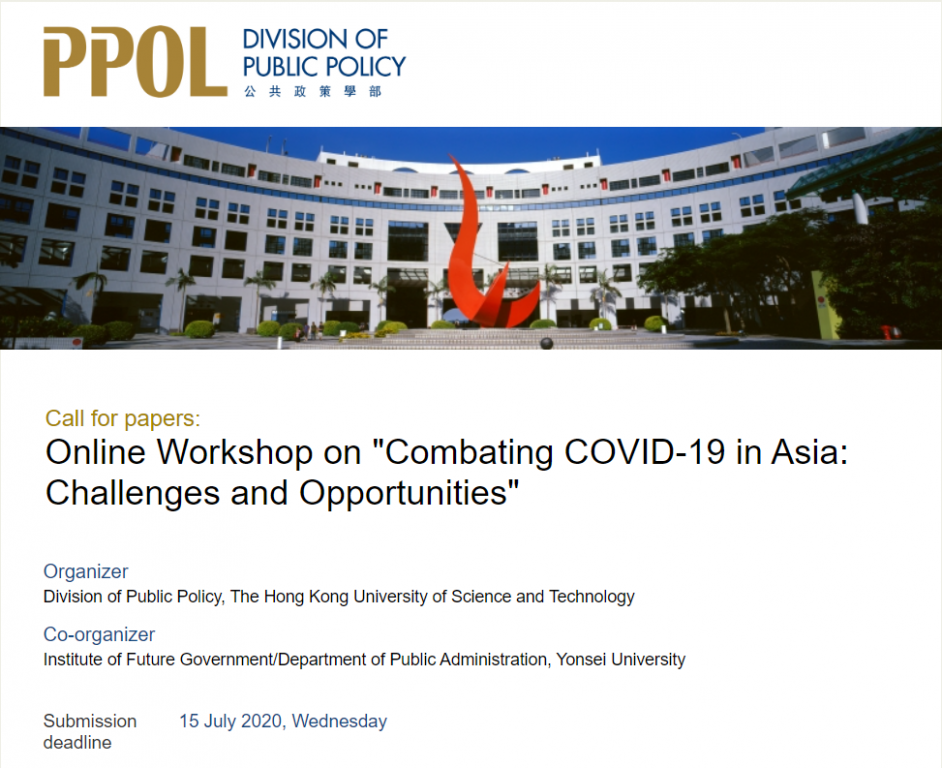Thank you for your message. The IPPA team will get back to you shortly. You first need to login here.



COVID-19 pandemic has been threatening people in every country in Asia-Pacific. India has been under the world’s biggest lockdown for its 1.4 billion people since March 25, 2020. Streets across many major cities in Asia-Pacific are disserted, and business and factories are closed indefinitely. Even in China, where life starts to get back to normal as the virus outbreak is under control through the implementation of strict containment measures for months, there are looming threats of second and third waves of virus outbreak.
On the other hand, Asia-Pacific countries have performed relatively well in controlling the outbreak by global comparison. In East Asia, for example, despite of its proximity to mainland China where the outbreak originated, and the surge of infected cases as seen in a growing number of places around the world has been averted so far, and the fatality rate is among the lowest in the world. In addition, it is rather remarkable that this has been achieved without imposing strict containment measures such as lockdown and economic shut-down.
The online workshop “Combating COVID-19 in Asia: Challenges and Opportunities” aims to bring together scholarly work in examining Asian countries’ responses to the unprecedented pandemic from the perspectives of public management and policy. We would like to invite contribution focusing on the following two themes:
Theme 1: Rise of Asia-Pacific amid COVID-19 Pandemic: Innovations in Public Management and Governance
The global COVID-19 pandemic provides unprecedented opportunities to compare decision-making and policy implementation across different countries. The fact that pandemic is caused by the same virus with the same infection rate, mortality rate, medical responses, and economic impacts should lead to the convergence of government responses; In reality, however, there are substantial variations across governments not only in the policy measures adopted, but also in the efficacy of such measures.
In Asia-Pacific, innovations in public management and government might play a key role in avoiding more devastating outcomes. For example, the communities and volunteer groups have risen to the challenges in filling critical gaps in maintain basic social services, and governments have made considerable progress in making use of various technologies such as mobile internet, data analytics, tracing technologies among others to curtail the virus infection. Efforts should be made to better understand not only the effectiveness and efficacy of such innovations but also potentially negative impacts on individual freedom and privacy.
Theme 2: Sustaining Asia-Pacific’s development amid COVID-19 pandemic: crisis responses and policy options
Crisis responses and policy options by Asia-Pacific countries will have significant impacts on Asia-Pacific’s development. For example, while the extended lockdowns can be effective in curtailing the spread of the virus, there can be devastating economic and social consequences for many developing countries in Asia-Pacific where there are significant number of daily wage workers in urban areas. On the other hand, less extreme measures may lead to surge in infected cases that can not only collapse health system, but also result in political upheavals. There is a possibility that the COVID-19 can potentially wipe out much of the economic gains accumulated in Asia-Pacific’s development during the last few decades.
While it might take years to fully assess the true impacts of COVID-19 pandemic, it is an urgent task to conduct rigorous analysis of the crisis responses, so that the governments can be better informed as they contemplate various policy options as uncertainty unfolds. The substantial variations in crisis responses and policy options across cities and countries in Asia-Pacific provide unique opportunity not only to study critical choices confronting Asia-Pacific countries, but also to advance theories and practices of policy-making and implementation amid global crises such as COVID-19 pandemic.
The deadline for submission of full papers is July 15, 2020. Papers should be submitted to Professor Xun Wu (wuxun@ust.hk) and Professor M. Jae Moon (mjaemoon@gmail.com). Selected paper will be presented in the workshop on July 25, 2020, and will be considered for publication in special issues in Journal of Asian Public Policy (a Taylor & Francis journal), Asia Pacific Journal of Public Administration (a Taylor & Francis journal), and China Policy Journal (a PSO journal).
https://www.tandfonline.com/toc/rapp20/current
https://www.tandfonline.com/toc/rapa20/current
https://www.ipsonet.org/publications/open-access/china-policy-journal
For more info please visit:
https://ppol.ust.hk/events_details.php?event_id=51


Thank you for your message. The IPPA team will get back to you shortly. You first need to login here.